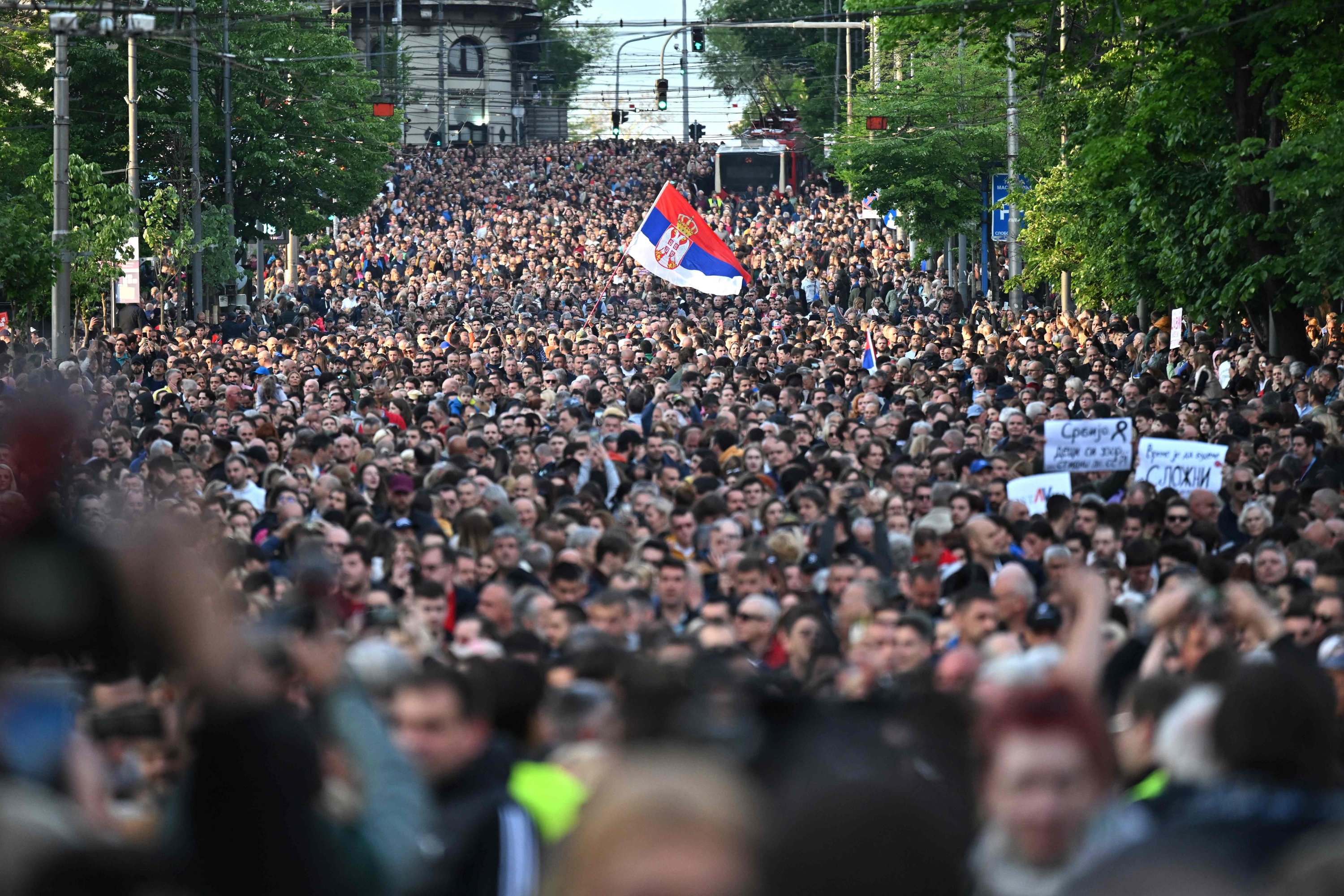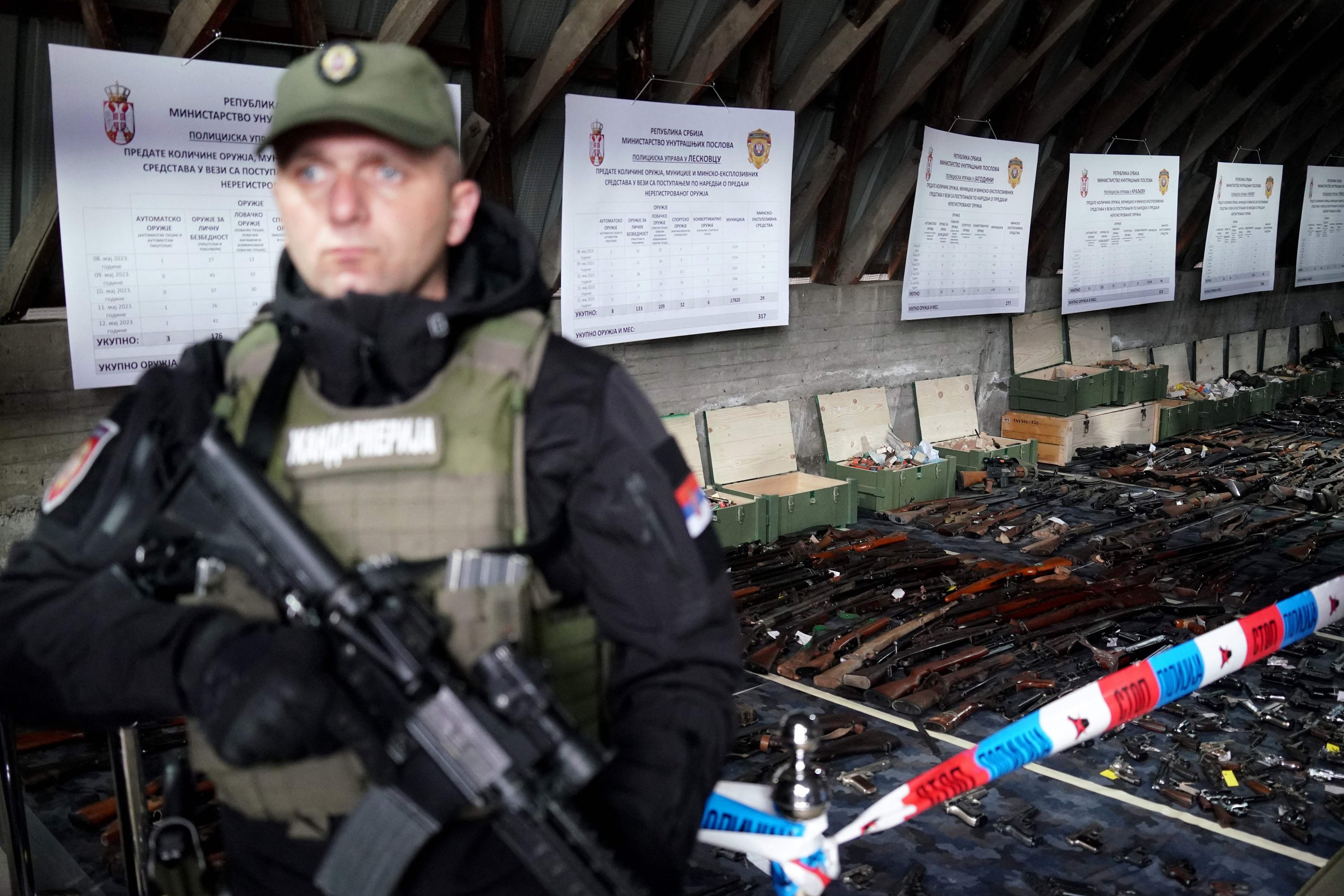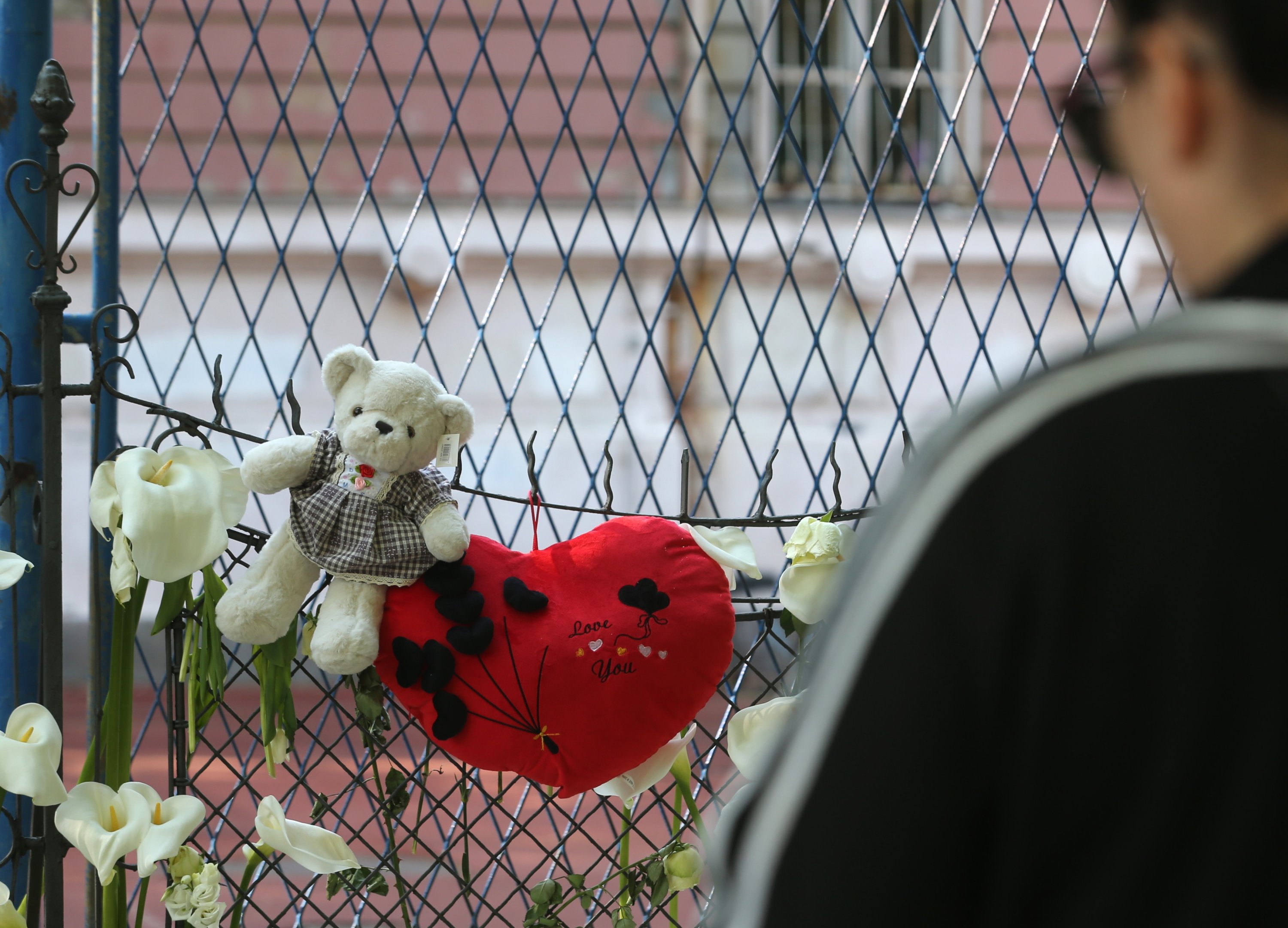© Turkuvaz Haberleşme ve Yayıncılık 2024
Serbia has been left soul-searching after two back-to-back mass shootings earlier this month rocked the nation and surprised the international community.
Mass shootings and gun violence is something usually associated with the U.S., which has the highest rate of per capita gun ownership in the developed world.
For a relatively small Balkan country, with a population of just under 7 million and despite being burdened with baggage from the Yugoslavia war of the '90s, such incidents are rare.
Many initially attributed the incident to factors such as excessive exposure to technology, video games and "Western influence," however experts pointed to other underlying issues such as peer violence, loneliness, as well as a lack of communication between parents and children.
“Peer violence is an increasingly common issue in the daily lives of primary and secondary school students, and it can certainly contribute significantly to such an act, but it is necessary to include all other parameters, especially family dynamics,” said Lejla Mustoo Başer, a clinical psychologist from the International University of Sarajevo (IUS).
She also urged people to look through social media misinformation and wait for the results of the examination besides expert opinions relating to the case to ascertain the causes that lead to such an act.
After the local media reported that the boy was an exemplary student, it prompted psychologists to scrutinize the educational process and society, which still upholds many traditional values. Some suggested that it should overall focus more on understanding the feelings and inner world of children.
However, Tamara Efendic-Spahic, a psychologist from Tuzla University, disagrees with the assumptions that educational aspirations led to this scenario and tragic outcome.
She blamed an excessive reliance on the fact that the achievements of the era we live in will compensate for the emotional void, feelings of inadequacy, incompetence and lack of connection.
As per various media reports, the boy, identified only as K.K., was reportedly a victim of peer pressure and was neglected and isolated despite the change of shifts at school before the tragic incident.
The initial societal blame was placed on the parents for the rare and tragic incident. The previous mass murder in the country had taken place over a decade ago when a war veteran killed 13 in a village in central Serbia.
However, the Belgrade school shooting was not the first example of violence perpetrated by minors. Back in 2016, three minors were suspected of setting a homeless person on fire.
After the tragic school shooting at Belgrade's Vracar, pieces of information emerged that shocked the public. For instance, the father of the perpetrator owned the weapon used in the shooting and had taken his son to a local shooting range.
When the boy's written note marking the targets came to light, social media users came up with theories about what preceded and led the boy to commit such an atrocity.
The media also revealed details of his relations with peers, some of which were extensively discussed on social media.
However, the availability and ease of access to weapons, and the fact he received arms training emerged as the most significant issue for many.
Data from various organizations, including the Voxeurope report from 2015, indicated that Serbia ranked first among European countries in terms of per capita gun ownership.
For countries that directly experienced the multiyear war following the breakup of the former Yugoslavia, establishing control over weapons on private property, especially in rural areas, became challenging.

Nevertheless, given that the murders in Belgrade occurred at a renowned school attended by the children of foreign diplomats raised additional concerns on security, psychological counseling, student movements and related issues.
After a criminal investigation established that the shooter was not under the influence of substances, social media users were quick to pass the judgment that the boy – the son of a renowned doctor – was both the victim and a bully and most likely committed the murders knowing that he would not be convicted owing to his age.
In a complex environment and a society shaped by an awareness of past wars and names of convicted war criminals, many saw this incident as influenced by how certain segments of society perceive the events of the 1990s, such as how names like Ratko Mladic are regarded.
A few days after the school shootings in Belgrade and the subsequent murders committed by a 21-year-old in two villages, where eight people were killed and 14 injured, large groups of citizens began protesting against the government under the banner "Serbia against violence."
The security situation in the country raised concerns, and the protesters demanded an urgent session of the national assembly. Some of the citizens' demands focused on media and the spread of misinformation in tabloids.
The number of minor incidents that followed the 13-year-old's murders further complicated the situation, giving the impression that a "domino effect" had started, with reports of attempted attacks among peers just a day after the shooting.
The situation over time led the shootings to become more of a political issue, and the government of Serbia found itself tested by the number of protests held and announced in the last 10 days.

To appease the protestors, Serbian President Aleksandar Vucic called on citizens to gather on May 26 to discuss the causes and consequences of the events.
The government also launched a scheme allowing citizens to surrender unlicensed weapons without repercussions, and as of last Sunday over 13,500 such weapons were handed over to security forces.
However, citizens and different organizations demanded more, like shutting down some of the leading television stations that purportedly promoted negative values that prompted individuals, including children, to engage in negative behavior and questionable decisions.
In the latest turn of events, the Serbian Education Ministry on Wednesday evacuated over 100 schools in the capital Belgrade after receiving bomb threats amid concerns after the mass shootings.
The unprecedented situation and tension in the country also affected other neighboring countries, including Bosnia-Herzegovina where parents' associations commenced to organize gatherings with counselors at schools requesting more dialogue and interaction between them and children.
“Reforms in schools are necessary on several levels and concepts, especially the improvement of institution-teacher-student communication,” clinical psychologist Başer told Daily Sabah.
She added that parents' concerns in schools in the broader region, as well as in Bosnia-Herzegovina could be justified, especially because some schools do not have a school psychologist.

She underlined that preventive measures were crucial in the identification of student’s needs, certain assessments of some students and further processing, which would significantly reduce the likelihood of such situations.
“Unfortunately much of the difficulties that students face remain unidentified by the school administration, and they are not processed, thus, with the combination of different factors, it can easily result in culmination,” she concluded.
